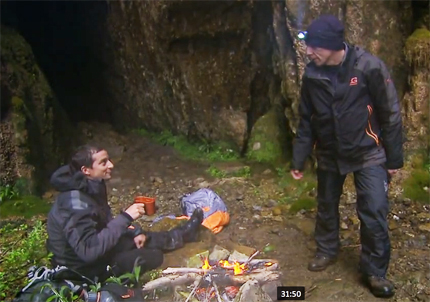
This article focuses on the Unique Selling Proposition (USP), however, if you study marketing you will learn that USP can stand for several things that represent the same basic idea.
USP can stand for:
- unique selling proposition
- unique selling point
- unique selling product
- unique selling price
Unique Selling Proposition
Definition: The factor or consideration presented by a seller as the reason that one product or service is different from, and better than, that of the competition. It must be strong enough to cause them to switch.
Many successful companies have not formally written down their Unique Selling Proposition (USP). They intrinsically know what it is, but cannot easily put it into words.
We say, “If you don’t know what you do, you cannot sell what you do.”
Nothing focuses a company like knowing its unique selling proposition.
Having it in writing will:
- Help you make better decisions
- Keep you from making bad decisions
- Keep you from wasting time
- Save you money
- Allow you to sell easily and with confidence
- Help you network with the right kind of people
Once you have it in writing, you can test every opportunity, technology, and investment against whether it will promote your USP. If not, you can wave good bye to random ideas and focus on the best ideas.
Unique Selling Propositions are the Big Idea
This is where the late Steve Jobs and Apple excel. Their ability to narrow down all that is amazing about a product into THE BIG IDEA.
Yet, it isn’t that you start with the product. You start with an idea. Steve Job’s daughter loved to play music into ear phones from a clunky Walkman hanging from her waist. One day, Steve had a big idea. What if she could have 500-1000 songs in a device smaller than a credit card? From the big idea, came the product.
An example close to home. We are a website development company. While there were just a few in the nation when we started in 1996, there are hundreds now.
As a startup, our big idea was that ‘all companies should have a website‘. Obviously, that really was unique in the 90’s. CEO’s told me they didn’t need an exterminator, when they heard the word ‘web’. Others told me that the Internet was a fad.
Fast forward, and we had to create a new USP, in order to avoid becoming obsolete and ubiquitous. Everyone now knows that they need a website. Old news.
Unique Selling Propositions Are Hard to Figure Out
Coming up with the Big Idea is hard work. In fact, it is so grueling that many business owners avoid it, and move on with a wing and a prayer.
Why is it so hard? Because it requires that you take yourself out of your brain and into your prospects’ and customers’ brains.
It is so natural for you to think as you do. You may be so deep in biz-think and spreadsheets, that you haven’t really worked out what makes your business uniquely different from your competition.
In my intake conversations with clients, I usually get the deer-in-the-headlights stare when I ask them this question. Or, I will get an answer that tells me what is different, but not unique enough to take on enough market share to succeed.
Theodore Levitt, a professor at Harvard Business School, suggests that, “Differentiation is one of the most important strategic and tactical activities, in which companies must constantly engage.”
What a Unique Selling Proposition Must Do
Your USP must meet three criteria. In Reality in Advertising, television advertising pioneer, Rosser Reeves, defines it in three parts:
- Each advertisement must make a proposition to the consumer – not just words, product puffery, or show-window advertising. Each advertisement must say to each reader: “Buy this product, for this specific benefit.”
- The proposition must be one the competition cannot or does not offer. It must be unique – either in the brand or in a claim the rest of that particular advertising area does not make.
- The proposition must be strong enough to move the masses – attract new customers as well as potential customers.
Your USP must influence your market to come on board.
 Brand loyalty is a strong thing, brewed up in the innermost parts of our emotional brain. You need to offer a message (proposition) that is so compelling it will overcome all the hormones and memories at play.
Brand loyalty is a strong thing, brewed up in the innermost parts of our emotional brain. You need to offer a message (proposition) that is so compelling it will overcome all the hormones and memories at play.
Think about buying a certain soap because the smell reminds you of your grandma. Or using a certain hair product because you are convinced it really does make you more sexy. That is hard stuff to overcome.
It must be strong enough to cause them to switch.
Last night, I watched Ben Stiller repeatedly changing his mind from defeat to epic, in spite of dread and fear, because of the many “do this, or we’re gonna die” propositions on NBC’s Running Wild with Bear Grylls.

In that grueling 48 hour adventure in cold, wet Scotland, Bear Grylls had an advantage over all of us. The proposition, “you are going to, or die”, is the ultimate. Not many businesses can offer such a strong proposition.
But you get the drift. It takes a really strong emotional connection for someone to change a behavior. That is what marketing is all about. Persuading the general public to change their habits and thinking.
This is why it is easier to market to hot and warm leads, than to cold leads. In many of those cases there is already an established connection that smooths the path of change.
How to Create a Unique Selling Proposition
Ask yourself, “What one term can be used to describe my brand, product, service in the marketplace.”
Before you can begin to sell your product or service to anyone else, you have to sell yourself on it. This is especially important when your product or service is similar to those around you. Very few businesses are one-of-a-kind.
While you may sell clothing, like a million other retailers in the US, you may sell clothes that give hope to people with allergies to certain textiles. You may be selling hope or relief, more than clothes.
In this case, if you try to target all people who wear clothes, not all will be hip to your fashions.
- Some people are looking for clothing bargains (think Walmart).
- If you live in Beverly Hills, you are probably looking for luxury and superior customer service, so you turn to Neiman Marcus. They have personal shoppers that look for your size, type and style of clothing, and give you a call when the new season’s clothes come in.
Unless you can pinpoint what makes your business unique in a world of homogeneous competitors, you cannot target your sales efforts successfully.
4 Tips for Creating Your Unique Selling Proposition
Take your time. This requires soul-searching, market research and creativity. If all else fails, hire a professional.
- Figure this out before you begin your business. Some of our saddest moments is seeing clients closing their doors because they failed to do this first. They didn’t realize that their product or service wasn’t much different than Walmart’s. Who can compete with that?
- Analyze how other companies use their USPs to their advantage. This requires careful analysis of other companies’ ads and marketing messages. If you analyze what they say they sell, not just their product or service characteristics, you can learn a great deal about how companies distinguish themselves from competitors.
- Think like your prospective customers. Forget everything you know about your business and ask yourself, “Do the masses want I have to sell?” You will not survive selling to a handful of people in a competitive market.
- Survey the “masses.” Don’t ask family and close friends. They will tell you what you want to hear. Literally go to trade shows, the mall, the next industry meet-up. Shake lots of hands, and have lots of heart to hearts. Use online and in-person surveys. Look for the first expression on their face. If the light bulb comes on, and delight is expressed, you are on to something. If not, rethink your whole business plan.
Last, but not least, enjoy the process of creating your unique selling proposition.

